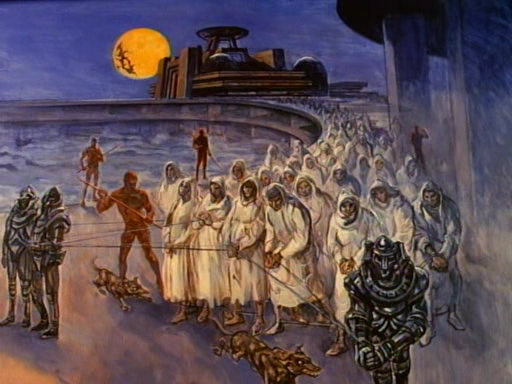

This suggests even the expansion of technology is not always a good thing. If it can make blue collar workers and sales people and teaches wholly obsolete, pretty soon the same will happen for managers, many if not most engineers and many, if not most, business men as well. Which, if the economy does not drastically improve enough to the point where other options immediately come up, could lead to literally 10s of millions of Americans, in addition to the currently unemployed Americans, who now have no job opportunities of any kind whatsoever.
Robots don’t vote. Grumbly, desperate, unemployed low-info people do. May not produce quite the ROI these companies were expecting.
And don't forget that wonderful gift to robotics...Obamacare.
A higher minimum wage leads to higher costs which devalues the higher minimum wage. (Not to mention the jobs lost as a result)
Technology enables us to work smarter, do more, at a higher level that was never dreamed possible than before. There are always bumps in the road and always those who moan that this is the end of jobs for everyone. In one generation it’s fast food machines replacing burger flippers, in an older one it was tractors replacing horses, and I suspect if you go back far enough, someone worried that the wheel would eliminate the motive to go capture slaves to do the toting and lifting...

Just curious, how do you tip in a place like this? How much percentage-wise?

Part of the evil dynamic of Rats proposing an increase in the minimum wage is that they get to claim that they are trying to help the working poor, thus securing their vote; while actually forcing more of them on unemployment and greater dependency on government programs and locking in their votes even more.
Just about everyone here uses office devices, tools, labor saving devices, or even chemicals and products that eliminate secretaries, assistants, helpers, reduces dependency on tradesmen, maids, cooks, stable help.........
Last I knew the new set of software keys each year ran $12,000 per single station. The cost of upgrading a ten axis Kinetix servo control cabinet with RS Logix 5000 runs about $300,000. That's without someone to write, debug, and test the logic. Tie it into a network for the sake of production data collection and remote servicing using General Electric's "Proficy", and add another $200,000. All that is without the actual machine you are controlling. That's just to automate it.
Then you add the three electrical support people to keep it all current with engineering and marketing's seemingly insignifigant, but huge change demands, and there is another $325,000 per year. Then the spares to keep on hand for when a thunderstorm or power surge hits, and that ties up another $300,000. Then hire three mechanics to change out motors, bearings, shafts, and gearboxes, and there goes another $200,000 per year.
I hate “Chili’s” but, was in San Diego last year with no alternative to my hunger.
Gotta say I luv’d their automated table service.
I plugged in my request and was met by a server maybe 10 minutes later with my food.
Still sucked but, they had salsa and I can hide anything under fire.
I think restaurants would be well served, as would the customer, by automating ordering.
They could even automate frying burgers and fries.
Seems lame anymore to pay someone that a large manufacturer like Swanson Meals has automated.
Scale it Down to McD’s and their competition.
Twenty years ago, in Burlington, MA, there was a Taco Bell with three touch-screen computers positioned in front of the counter, at which you could place your order. They were clunky kiosks with CRT screens, but they worked fine. However, evidently, TB didn't consider them cost-effective because they didn't roll the feature out to their stores (and that Burlington restaurant eventually turned into a Wendy's).
Today, in Lexington, MA, there is a Panera with four iPads mounted on sturdy stands positioned near the counter. They are much prettier than the Taco Bell kiosks, and, unlike the TB gadgets, they have credit card readers glued on. But other than that, they work about as well as the 20-year-old technology. However, they do address a particular problem Panera has: for some reason customers take inordinately long to give their orders to human order takers. The iPads solve that nicely.
I recently read a very interesting article on the subject here: economist.com.
My husband was a program manager on one of the largest vehicle component programs in the US. He hated working with the unions so much that whenever he could switch out a union member job for a robotic process he did. Some of his robots took over the jobs of 6-7 employees in one fail swoop. The upfront investment was huge but the payoff was well worth it. To think that companies won’t make this investment for the long-term payoff is ridiculous. They absolutely will.
Minimum wages destroy the marginal product of your labor that measures between zero and the minimum wage. Unless that product exceeds the minimum wage, plus the sundry burdens employers get with employment (potential suits, taxes which must be forwarded despite cash flows, profits, etc.) you will not be hired.
This is creating poverty. Isn’t a welfare recipient better off working? If yes, then a penny less than minimum wage is always better than not working and that goes all the way down until you hit zero.
We have to become a pro-work society. Nobody should get welfare for free, even those with disabilities can be useful in work.
The future American Juan Doe worker will be running treadmills to power the machine that took his job.
The Law of Unintended Consequences.....ain’t it a bitch?